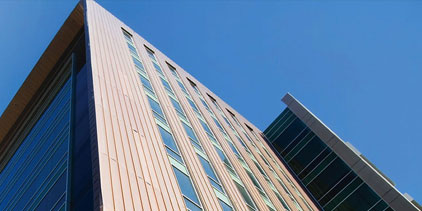Attending the UK-Jordan Researcher Links Workshop: Guest blog by our Research Assistant – Education and Sustainability, Dr Renuka Thakore
張貼於: 2019-06-24
Energy consumption is vital for societal sustainable development. Notably, every activity in our home consumes energy: from using home appliances to commuting to work or a place of entertainment.
Jordan’s residential sector consumed around 43% of the total energy in 2016 and the value of total electrical energy losses reached 13% in 2017. This evidence suggests that the majority of Jordan’s building stock is developed without an explicit consideration of energy-efficient design principles.
Despite the fundamental importance of decreasing the dependence on imported energy, only 3% of its energy demand is met locally in Jordan. Increasing energy demand, high fuel prices and growing concern about climate change are threatening Jordanians with energy scarcity, energy inequality and increasing energy prices. This contributes to the disparity in socio-economic development of the local and regional areas of Jordan.
In response to such urgent energy efficiency and sustainability challenges, Jordan and the UK have partnered to provide a platform for sharing of experiences and adoption of best practices; namely, a four-day workshop at Philadelphia University, Amman, Jordan. The workshop was funded by a Researcher Link grant provided by the UK Department for Business, Energy and Industrial Strategy and delivered by the British Council. This international and interdisciplinary research workshop aimed to shape Jordan’s future research, innovation and policies in energy-efficient building design, taking into account local limitations, leading to the development of a roadmap to reduce Jordan’s in-building energy consumption. This, therefore, represented a huge opportunity for Jordan to achieve its energy import reduction targets.
Having received a grant for accommodation and travel to Jordan, I participated in the workshop and presented a PowerPoint presentation on my research interests and an insight into the lack of commitment on deliverables in energy efficiency in buildings from both global and local perspectives. Throughout the workshop, I engaged in a multi-disciplinary dialogue focused on addressing energy consumption and low carbon transition challenges. This included Jordan’s transition to low carbon energy supplies, mobility options, home and commercial spaces, sustainable production and waste management, resilience and adaptation change, and preservation of the natural environment.
 The visit to Jordan provided me with the opportunity to meet Jordan and UK academics, industry partners and the CEO of the King Hussain Business Park. I saw a few world-famous historical sites in and outside of Amman including the historic Citadel and the Roman Theater, Jerash – the ruins of the walled Greco-Roman settlement of Gerasa just outside the modern city, inhabited since the Bronze Age, Al-Salt hillside town, the Dead Sea – a salt lake with its surface and shores below sea level which is Earth’s lowest elevation on land, and Petra – one of the most famous archaeological site in the world.
The visit to Jordan provided me with the opportunity to meet Jordan and UK academics, industry partners and the CEO of the King Hussain Business Park. I saw a few world-famous historical sites in and outside of Amman including the historic Citadel and the Roman Theater, Jerash – the ruins of the walled Greco-Roman settlement of Gerasa just outside the modern city, inhabited since the Bronze Age, Al-Salt hillside town, the Dead Sea – a salt lake with its surface and shores below sea level which is Earth’s lowest elevation on land, and Petra – one of the most famous archaeological site in the world.
Attending to the workshop built my research capacity and I am looking forward to reaching out internationally and making a valuable contribution towards the research community working collaboratively for research and funding bids. There is no doubt that this workshop increased my appreciation for the Jordanian culture and people. I also recognised that Jordanians are friendly, generous and tolerant and Jordan is a safe country to travel in.


